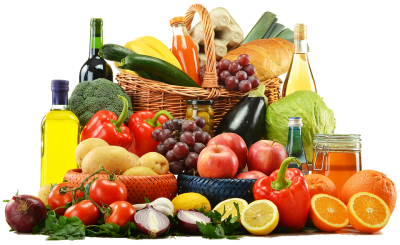
Vegetables play a vital role in our diets, as they support the normal functioning of the different body systems. They do so by providing our cells with vitamins, minerals, fiber, essential oils and phytonutrients. While eating cooked vegetables is healthy for you, in certain instances it is advantageous to eat raw vegetables. This is because cooking destroys essential nutrients such as vitamin C and folate, and also kills vital enzymes that help your body to digest such foods.
Eating live, raw foods makes sense. Heating over 118 degrees Fahrenheit destroys much of the nutrients in your food. The cooking process diminishes the natural life energy in the food. Eating raw also helps you to maintain the natural enzymes in foods which cooking destroys. Eating at least 50% of your food raw and alive can be very beneficial to your health. Many people have found that eating 80% raw is even better.
Juicing is a fabulous way to get many nutrients from fruits and vegetables. Start by juicing only vegetables that you enjoy the taste of. The juice should be pleasant to the taste, not make you feel nauseous. . Raw vegetable juice made from veggies that are safe to consume uncooked is a wonderful way to get a fast infusion of easy to digest, colloidal minerals. It is also highly alkalizing to the body and a proven way to gently detox the gut. It is very important to listen to your body when juicing. Your stomach should feel good. If it is churning or growling or generally making its presence known, you probably juiced something you should not be eating.
Buying your vegetables from a local organic source is the ideal way to ensure that your vegetables are both fresh and high-quality. Avoid wilted vegetables of any kind, because when vegetables wilt, they lose much of their nutritional value. In fact, wilted organic vegetables may actually be less healthful than fresh conventionally farmed vegetables.
But do not despair, eating vegetables whether they are raw or cooked is more important than worrying about what is the best way to consume them. For instance raw broccoli is high in an enzyme called myrosinase that helps cleanse the liver of carcinogens. But, broccoli also contains goitrogens (see more below) which are reduced when it is cooked.
Some vegetables contain a chemical called oxalic acid. This substance is very irritating to the mouth and intestinal tract. It also blocks mineral absorption, especially iron and calcium and may contribute to the formation of kidney stones. The good news is that oxalic acid is great reduced by light steaming or cooking and discarding the water. Vegetables that contain oxalic acid include:
Vegetables Which Contain Oxalic Acid
- Spinach
- Chard
- Parsley
- Chives
- Purslane
- Beet Greens
Some people believe that cooking cruciferous vegetables is also better because they contain chemicals (goitrogens) that block the production of thyroid hormone. Although studies have not been done to verify that eating these vegetables raw is hard on the thyroid, cooking these vegetables reduces the goitrogenic substances by about 65%. If you are concerned about this, these are the vegetables that may also be better for you cooked:
Vegetables Which Contain Goitrogens
- Arugul
- Broccoli
- Kale
- Cauliflower
- Cabbage
- Turnip
- Collard Greens
- Bok Choy
- Brussel Sprouts
- Radish
- Rutabaga
- Watercress
Other raw vegetables you may want to avoid include:
- Raw Potatoes: contain hem agglutinins that disrupt red blood cell function
- Raw Sweet Potatoes: may cause gas and bloating in some people
- Raw Edible Mushrooms: contain toxic substances such as agaritine, a suspected carcinogen. These substances are heat sensitive and are neutralized by cooking.
- Alfalfa Sprouts: Mildly toxic and inhibit the immune system.
Some Nutrients in Vegetables are increased when Cooked:
- Asparagus: Steaming ignites its cancer fighting potential
- Mushrooms: Cooking increases potassium
- Tomatoes: Cooking increases cancer fighting lycopene
- Sweet Potatoes: Beta carotene is increased
To ensure the highest retention of nutrients during cooking the three keys are water, temperature and time.
As temperature, cooking time, and water volume go up, so too do nutrient losses. If you can, steam rather than boil as this cuts down on nutrient leeching. Cook at lower temperatures where possible, or use a higher temperature for a shorter period of time. Keep the size of vegetable pieces as large as possible to minimize oxidation losses, and don’t overcook your vegetables. In most cases you still want them firm and colorful.
Other interesting information is found in Dr. Weston A. Price’s research. He found that the bulkiness (fiber of raw vegetables interfered with the body’s ability to extract the minerals from them in the digestive process. He however found that cooking your vegetables in butter enhanced the availability of the minerals as the fat in the butter permitted greater absorption.
So, in summary, if you have concerns about how you should eat your veggies, hopefully the above information can be helpful. But most importantly, just eat your veggies!
